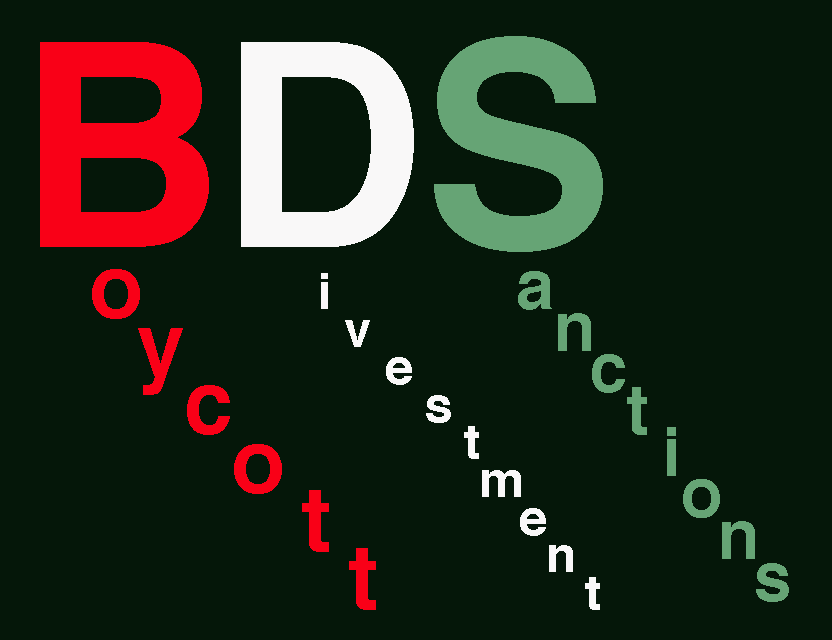 Photo from Wikimedia Commons.
Photo from Wikimedia Commons. A new report from the Israel on Campus Coalition (ICC) published on Nov. 4 states that there has been an increase in boycott, divestment and sanctions (BDS) campaigns and disruptions of pro-Israel events on college campuses over the past three years.
The total number of “BDS and anti-Israel campaigns” went from 20 in the 2016-2017 academic year to 25 in the 2017-2018 academic year and 28 the year after.
Over the same timeframe, the number of disruptions of pro-Israel events on campuses increased from 13 to 18 and then to 23, respectively. The 23 recorded disruptions in the 2018-2019 academic year are the highest number the ICC has recorded since the 2011-2012 academic year.
“As the BDS movement has become more established over time, anti-Israel tactics have become increasingly hostile as Israel’s detractors double down on efforts to make campuses inhospitable to Jews and Zionists,” the report states.
The report goes onto highlight how anti-Semitic incidents are increasing and have “strong links to anti-Zionist sentiments” on campuses, such as “Free Palestine” graffiti being found on the University of Oregon Hillel’s sign as well as on San Francisco State University next to graffiti of a swastika.
The report also notes that there are instances of Jewish and pro-Israel students being ostracized on campuses, such as Students for Justice in Palestine (SJP) and Jewish Voice for Peace (JVP) leading a boycott of all Jewish and pro-Israel student groups on New York University’s (NYU) campus. SJP at UC Davis also led a recall effort and boycott against the election of Jewish student Michael Gofman as student president of the university.
“SJP students rallied to the party’s cause, highlighting Gofman’s Jewish and pro-Israel affiliations, but ultimately failed to change the election’s outcome,” the report states. “In a particularly vicious protest, SJP activists screamed obscenities at Gofman, combining anti-Israel chants with calls for his ouster.”
SJP chapters have also held various events on campuses like Cornell University and the University of Minnesota arguing that anti-Zionism isn’t anti-Semitism, which the report argues were “revisionist attempts to distinguish Zionism from Jewish peoplehood, with non-Jewish groups denying that Israel is intrinsic to Jewish identity.”
The report later argues that SJP has “exploited intersectionality” to advance their cause.
“Intersectionality allowed SJP to connect its grievances with broader causes, and to equate Palestinian struggles with oppression suffered by other groups,” the report states. “In this way, SJP promoted growing hostility toward Jewish students, encouraging and normalizing an environment of antisemitism among minority groups on campus.”
One of the examples listed in the report includes SJP allying with the African American Student Society and Queer Union at Swarthmore College in their BDS campaign, where they accused the Israeli government of implementing apartheid policies. Another involved SJP at Emory University receiving signatures from the president of the Texas Coalition of Black Democrats and a Black Alliance for Just Immigration organizer in support of the mock eviction notices posted on Emory students’ doors in April.
“Taken together, these efforts demonstrated the central role of coalitions in advancing anti-Israel initiatives,” the report read. “Having established dozens of campus-based partnerships, Israel’s detractors reaped the advantages of intersectionality, leveraging coalitions to intensify attacks on Israel. While coalitional efforts typically focused on BDS, they also encouraged attacks on Jewish students, enabling anti-Israel activists to legitimize clear instances of prejudice under the cover of intersectional coalition support.”
However, the report notes that there has been “a surge in pro-Israel cooperation and coordination” on campuses to combat BDS campaigns, pointing to failed BDS resolutions in UC Santa Barbara, Cornell University and Ohio State University over the past year as examples.
“The rise of anti-Semitism among anti-Israel groups — combined with tactics of deception and manipulation — presented significant challenges for Israel’s supporters,” the report concludes. “At the same time, protracted anti-Israel initiatives created new obstacles for the pro-Israel campus movement. In the months ahead, pro-Israel students and campus professionals face a complex reality on U.S. campuses.”
The full report can be read here.























 More news and opinions than at a Shabbat dinner, right in your inbox.
More news and opinions than at a Shabbat dinner, right in your inbox.